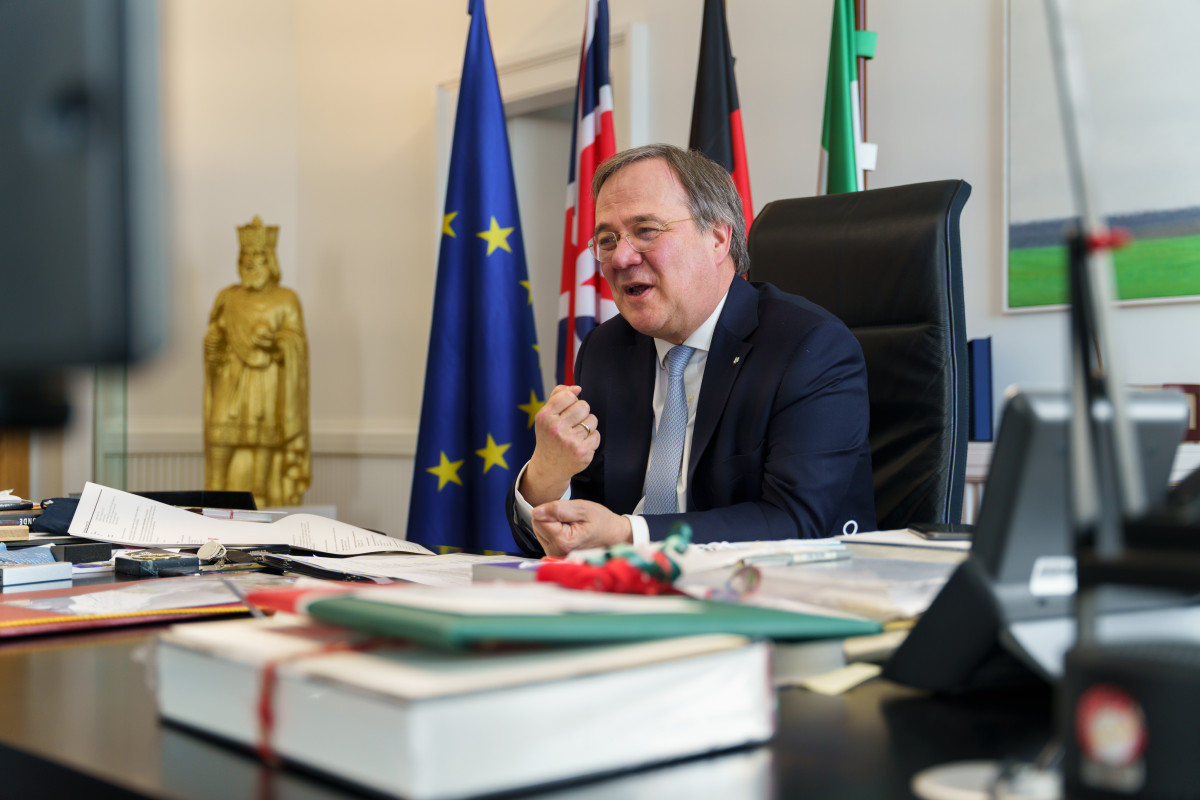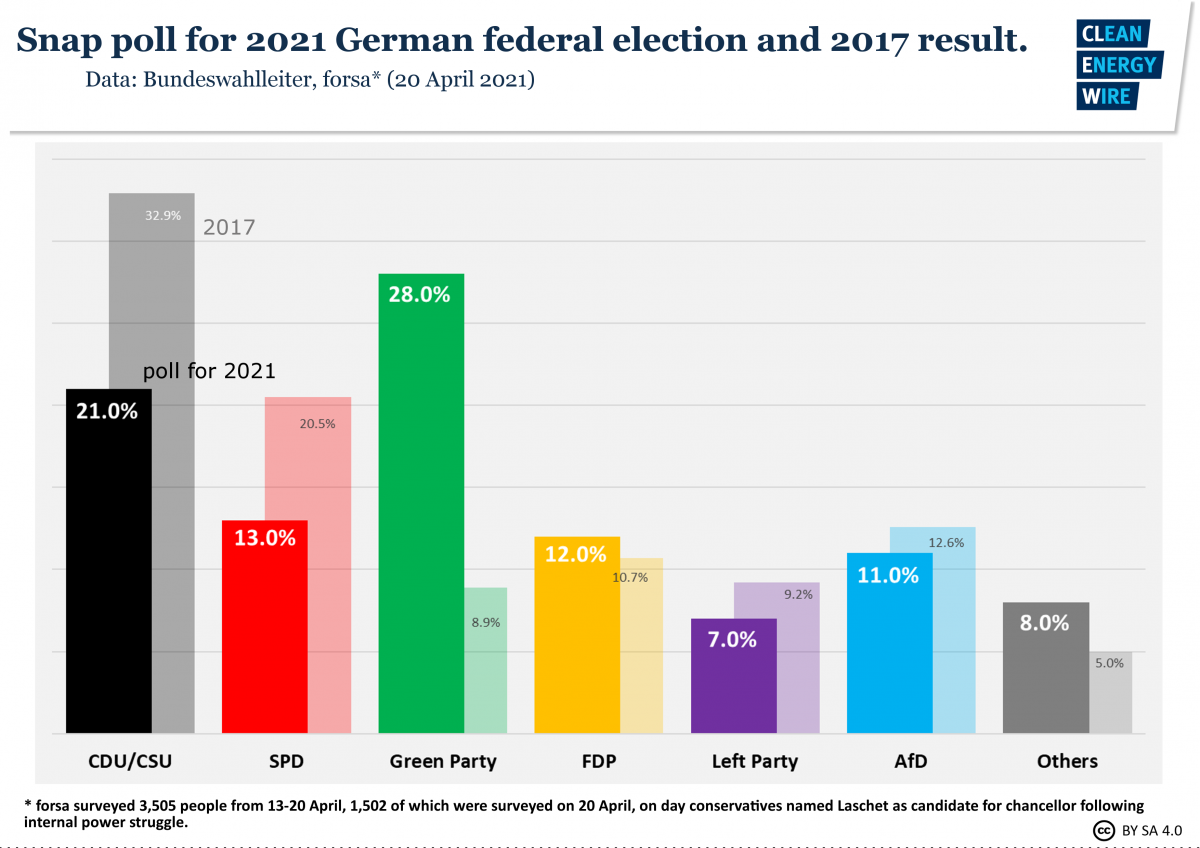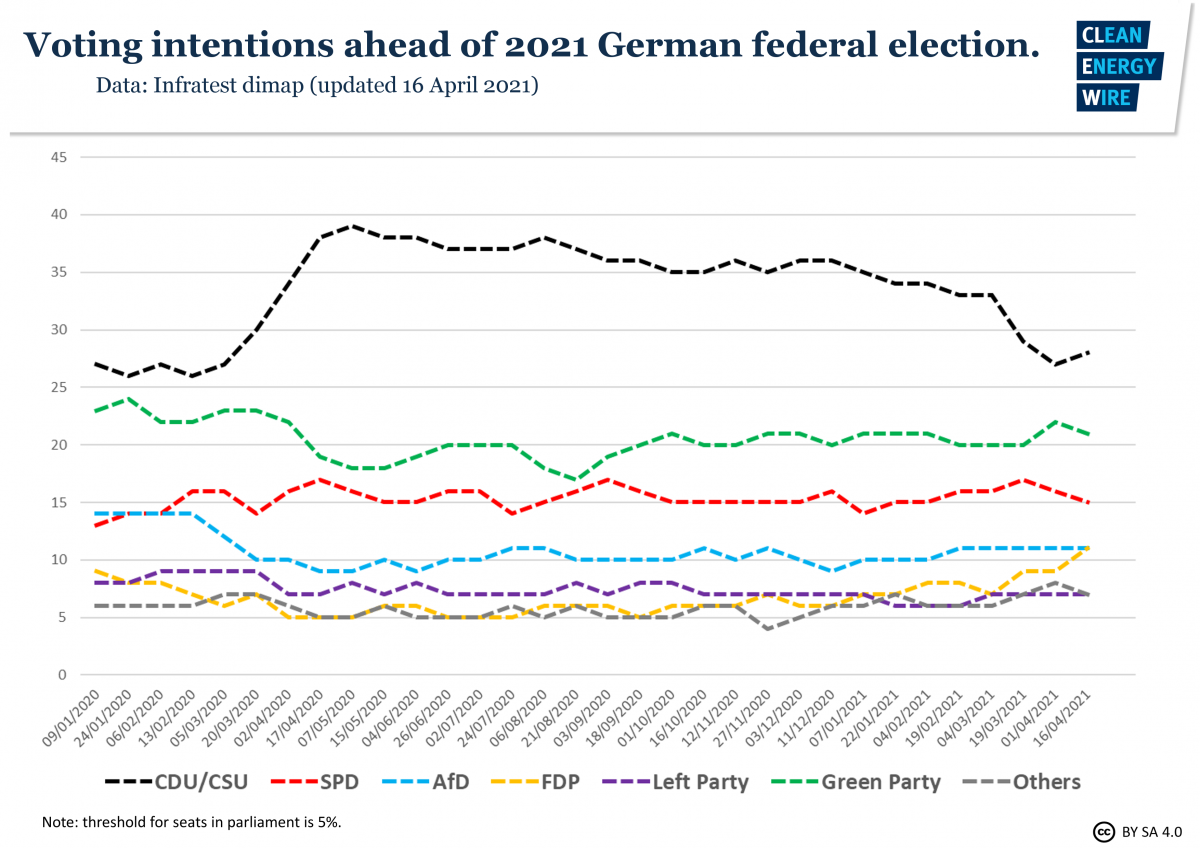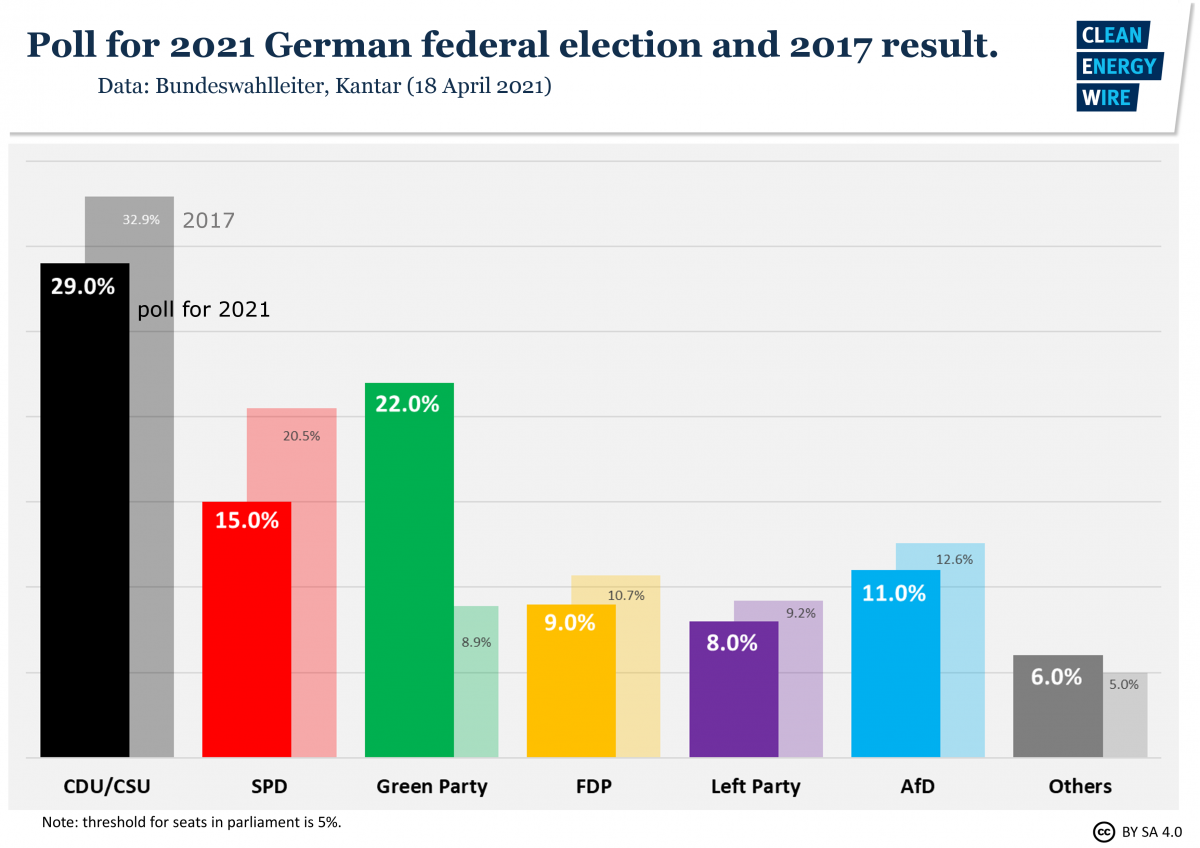Conservatives choose Laschet as chancellor candidate, signalling post-Merkel continuity
Germany’s governing conservative CDU/CSU alliance has chosen Armin Laschet as its candidate to succeed Chancellor Angela Merkel after September’s federal election, ending a days-long internal struggle for the top-spot. The 60-year old premier of Germany’s most populous state, North Rhine-Westphalia, is seen as a centrist likely to follow the moderate course of Germany’s current leader.
“The dice have been cast. Armin Laschet will be the chancellor candidate of the [conservative] Union,” said Söder at a press conference. His stepping aside after days of divisive struggle within the alliance effectively cleared away the last hurdle for Laschet’s nomination. The foundation for the decision was laid as Laschet, who was elected party head earlier this year, won the backing of a majority of the CDU’s leadership last night.
At a press conference following days of controversial discussions and infighting in the conservative leadership circles, Laschet focussed on the unity of the alliance. He also said Germany must become “better, faster and more modern”, especially after the coronavirus pandemic, but made no mention of climate change or the energy transition. Laschet did emphasise global cooperation. “The Germany I envision is working in an alliance of democracies around the world, together with our transatlantic partners, with a firm belief in multilateral solutions.”
The rocky selection process makes for a difficult start for Laschet, but observers say he could get over it. “Armin Laschet is damaged, but he's the kind of guy who can put something like that away quickly and look ahead,” political scientist Emanuel Richter of RWTH Aachen University told public broadcaster phoenix.
Germany will elect a new parliament on 26 September and thus determine which party will lead the next coalition government and shape the country’s climate and energy policy. As normally no single political party reaches an absolute majority in national elections, a coalition of two or more is necessary to form a government, with the largest party in the alliance fielding the chancellor. A coalition between the CDU/CSU alliance and the Green Party as the smaller partner has long been seen as the most likely outcome.
Conservatives see Green Party as main challenger
A snap-poll published just hours after Laschet was chosen as a chancellor candidate showed the Green Party surging ahead to become the most popular party in Germany for the first time in the run-up to the elections (see chart below). Although this poll was an outlier, current polls indicate that the Greens for the first time have a real shot at the chancellery, if the right alliance with other parties can be found. The Conservatives still lead in the great majority of polls but have been dealt heavy blows by both a lobbying scandal involving key climate and energy MPs and missteps in handling the pandemic – with Laschet under heavy criticism.
Merkel decided not to run again and pressure on the conservatives to find a candidate had been mounting. Laschet’s position as CDU head has usually meant chancellor candidacy of the conservative CDU/CSU alliance as well, as the CDU is far bigger than the CSU. However, as his approval ratings trailed far behind those of Söder, the Bavarian state premier threw his hat into the ring as well. Conservatives traditionally choose a candidate behind the scenes and the lack of a formal procedure had led to a comparatively chaotic contest. Many CDU politicians had backed Söder’s candidacy in recent days, but Laschet forced the vote of his party’s leadership, which he won 31 to 9, with six abstentions. The CSU is the CDU’s sister party in Bavaria and stays out of regional elections in the remaining 15 states, and vice versa. The two parties work together in federal politics and present a joint lead candidate.
A recent poll by forsa had shown that one third of current supporters of the conservatives would choose a different party or not vote at all should Laschet become the candidate. This would translate to about 100 lost seats in parliament, wrote media company RTL, which had commissioned the poll. If Germans could directly elect their chancellor (it is done by a majority of MPs) Laschet would lose against the Greens’ new candidate Annalena Baerbock, but beat the Social Democrat’s Olaf Scholz.
Chancellor Merkel was quick to congratulate Laschet on his nomination. “I look forward to the coming months of our cooperation,” she said in a tweet by her spokesperson Steffen Seibert.
Laschet now has to to deal with the more than bumpy start for his campaign as lead candidate, and the uncertain backing of large parts of the conservatives. The Greens, in contrast, are off to a much better start with a smooth and professional selection process and a well-oiled campaign machine. They kicked off Germany’s election campaign in earnest this week by presenting party co-leader Annalena Baerbock as their candidate in the race to succeed Angela Merkel in the chancellery. In her nomination speech, Baerbock promised to put climate action at the centre of government policy to set Europe's largest economy on course for its target to become climate-neutral by mid-century.
Leading conservatives such as Söder and former candidate to lead the CDU Friedrich Merz have repeatedly singled out the Greens as the main challenger for the chancellery. A mere three percentage points in current polls means the difference between a conservative or a Green chancellor, Merz told public broadcaster Deutschlandfunk. “Three down for us, three up for the Greens, then the 2021 federal election is decided.” Merz said the nomination of Baerbock as candidate was “the biggest challenge for us”. However, it remains to be seen whether the party can sustain the good numbers over the coming months.
“I want climate prosperity” – Laschet
Laschet is the premier of Germany’s most populous state of North Rhine-Westphalia (NRW), and was elected leader of his party in January. During the election race in the months to come, Laschet can point to his government experience, as he has been leading the conservative coalition of NRW with the pro-business FDP since 2017. And he can point to his success in difficult elections after winning the former Social Democratic stronghold from the SPD in the 2017 state election.
“When I joined the CDU in my youth, I never did so with the idea of becoming chancellor one day,” said Laschet at the press conference. “My motivation at that time was full of idealism, to contribute to a better world and to concretely improve people's lives.”
He represented the CDU in the areas of climate, energy and transport in the 2017 national coalition talks with pro-business FDP, the Greens and the CSU – which later fell apart – but his own policy record in these fields is regarded as somewhat ambiguous.
Lignite mining state NRW, home to Germany's largest energy company RWE, has been a key battleground for the brokering of the phase-out. And Laschet – who has invoked his father’s job as a coal miner to emphasise his working-class background and dependability – has been criticised for his generous stance on granting coal companies comfortable compensation payments, his defence of the recently opened NRW coal plant Datteln IV, and his government's handling of the protests in the Hambach forest near the Garzweiler lignite mine.
In the past, he has called for keeping jobs in the industry and lashed out against a “banning mentality” with regard to coal and combustion engines -- policies that the Green Party adamantly pursues. He has emphasised that “the three principles of affordability, supply security and environmental protection” must be aligned.
In the more recent past, Laschet has moved on to an optimistic narrative about the chances the energy transition holds for Germany’s economy. At the kick-off event to develop the CDU election programme, Laschet said he aimed to readjust the relationship between state, economy and ecology. “I want climate prosperity. That means leaving behind a better world than we found it. With successful companies and secure jobs – the economic basis of our success.” He pointed out that making Germany a leader in green hydrogen technology was one way to do so.
Laschet – who worked as a journalist before entering politics – portrays himself as a man of compromise. His time as a member of the European Parliament for several years might come as an asset in talks with European Commission head and fellow CDU member Ursula von der Leyen about details of the bloc's Green Deal, the EU programme to become the first climate-neutral continent. Laschet put an emphasis on European cooperation and said this pledge was central to his bid to become chancellor candidate. “We need a European Germany.”





